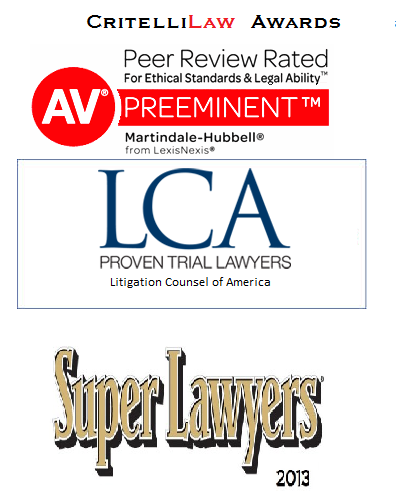Social Networking for Lawyers: Risk or Reward?
Apr 15th, 2009 | By critellilaw | Category: TechnologyThe other day a question was posted on LinkedIn wanting to know if lawyers thought social networking provided a value to their practice or if it was perceived to be more of a detriment. It was an interesting question, particularly given my recent utilization of Twitter as a live broadcasting medium from the ABA Techshow to our website.
As an honest answer should (hopefully) be based upon something more than a personal opinion, I set about trying to find a methodology that could be used in coming to a definite conclusion. While there are certainly some interesting ones out there (take a look at the ROI calculator, for instance), none offered me the legal, methodical analysis that I was familiar with on a professional level. So, I turned to the Federal Rules of Evidence.
As you may recall, F.R.E. 403 sets out the “balancing test” to be used by judges to determine whether relevant evidence should be excluded from use at trial. The judge must determine if the benefit of using the evidence is substantially outweighed by some detrimental aspect. It doesn’t give the judge the answer, but it provides the methodology for the judge to use. With a few minor tweaks, this same balancing test appears to be equally appropriate in considering the worth of social networking.
Like Rule 403, the analysis consists of two steps. First, you must determine whether or not the social networking app at issue provides a benefit. Second, you must decide whether the beneficial value of that method of social networking is substantially outweighed by its detrimental value.
In order for social networking to be considered a “benefit” to you in your practice, I believe that it must help you do one of the following:
- obtain new clients;
- maintain current clients; or
- retain clients
If the social networking app in question doesn’t fulfill one of these functions, then it constitutes a technohobby. It may be fun, but it doesn’t bring a direct benefit to your law practice.
The second step of the process is to make a determination as to whether the beneficial value of that social network is substantially outweighed by its detrimental value. By detrimental value I mean the likelihood of prejudicing your law license in some manner, misleading your clients as to your services or capabilities, wasting your time or needlessly presenting information found elsewhere.
So if you really want to know if your blog posts, tweets and other virtual ephemeras are really worth the time they take away from traditional rainmaking attempts, take a couple of minutes and run through the above analysis. You might be surprised at what you find.
And don’t hesitate to tweet me your results 😉













